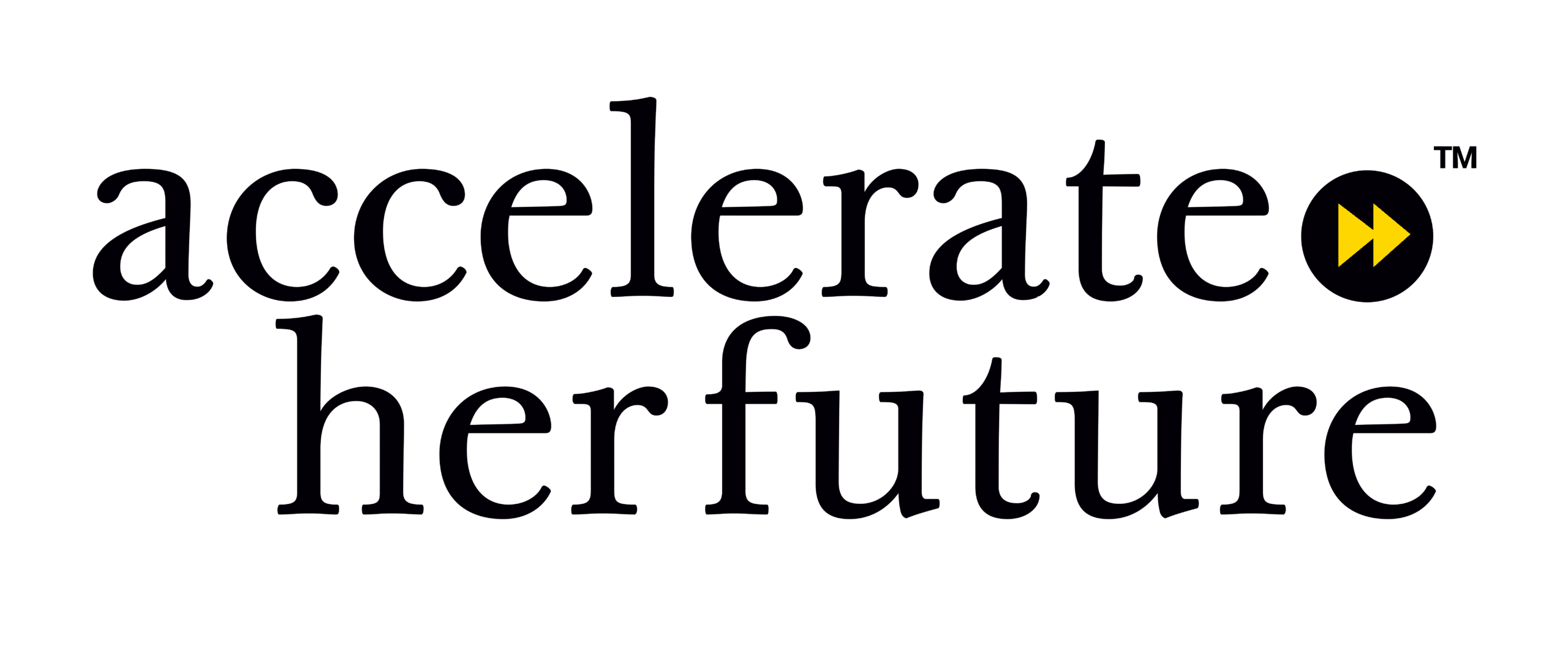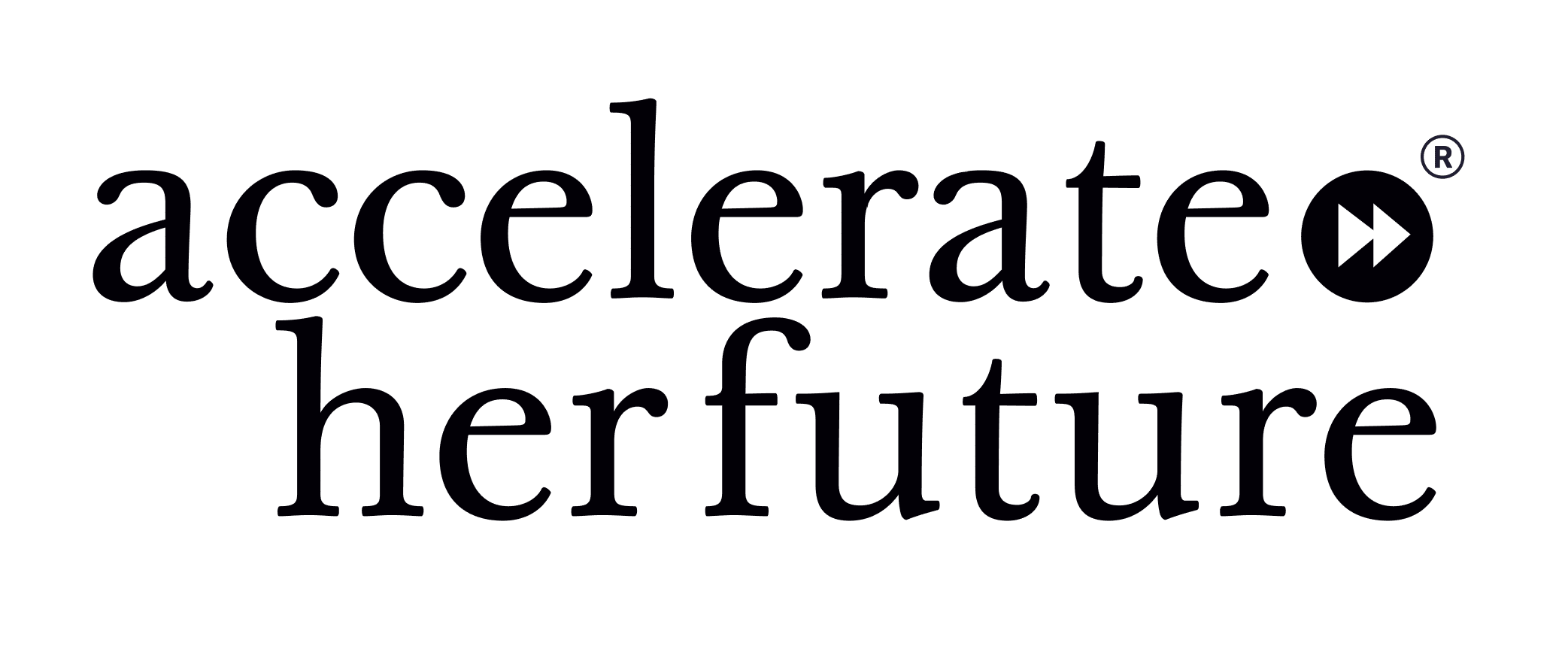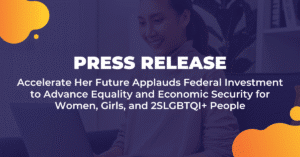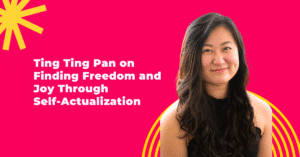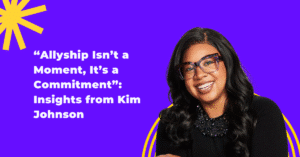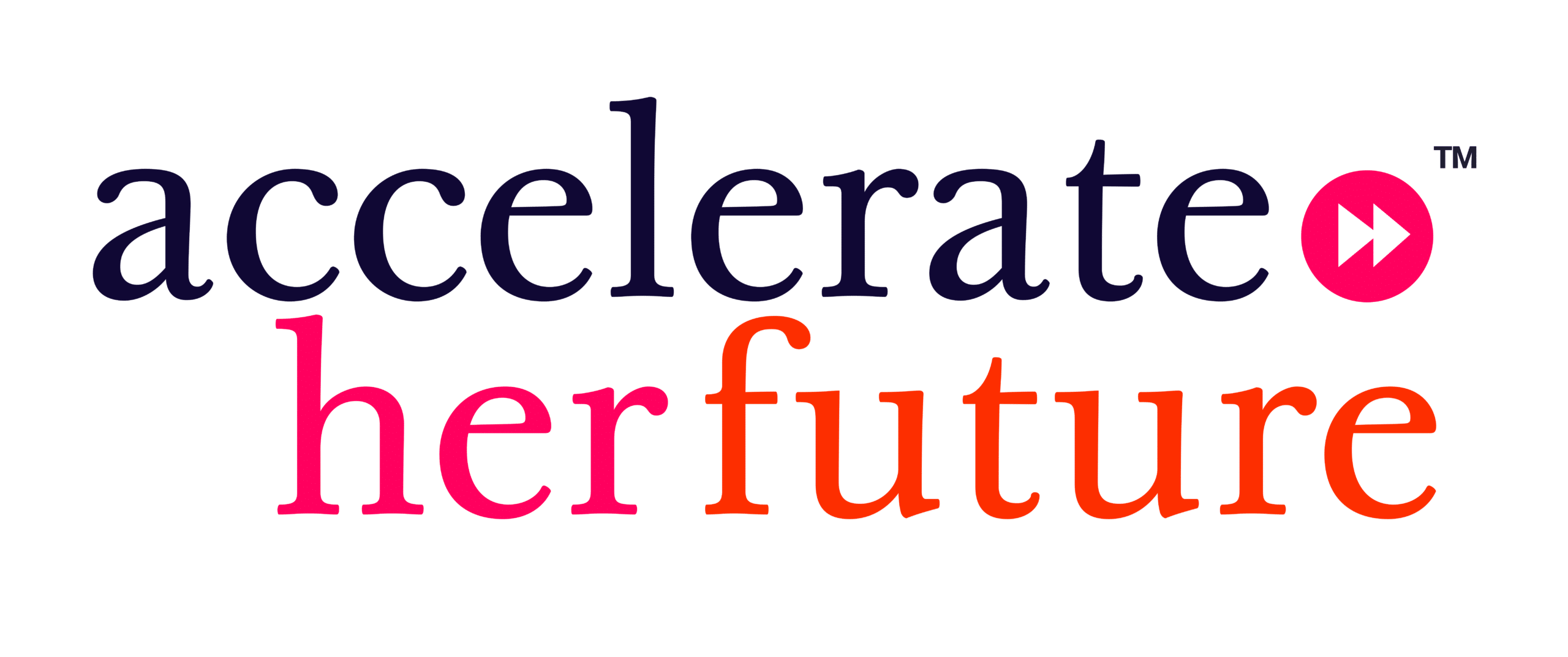A Fierce Advocate for Racialized and Indigenous Women in Data Science
May 8, 2022
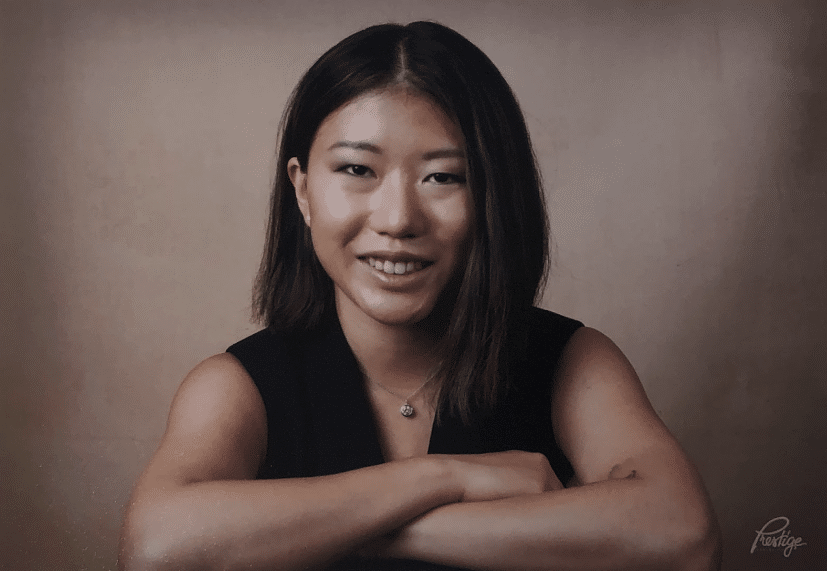
Meet AHF Winter 2021 Fellow, Helena Yu.
Helena is a statistician-in-learning and has worked on various data science, data engineering and data visualization projects in both private and non-profit sectors. Prior to joining Scotiabank as a Data Strategist, she worked on video analytics, fraud detection, and data integration at Accenture and in business intelligence at Microsoft. She is committed to supporting social impact organizations to achieve their mission through her understanding and experiences shaped by her education in the fields of statistics, computer science and marketing. She is currently a Project Client Manager and a member of the New Client Acquisition Committee at Statistics Without Borders.
During one of her co-op work terms, Helena realized women, and especially racialized and Indigenous women, face more scrutiny and discrimination than coworkers that are men.
“I observed that the contributions of women within my field are often not taken as seriously,” reflects Helena. “Women of colour can also face exclusion from opportunities and conversations that may advance careers, especially due to the formation of ‘boys’ clubs’ particularly in sectors like Data Science where there is a lack of representation.”
Helena heard about AHF’s Fellowship Circle through LinkedIn and decided to apply because she lacked access to a network of other women of colour in STEM. Working with mentors within the Fellowship Circle has helped Helena reframe imposter syndrome moments, combat negative self-talk, and engage in self-affirming practices by taking ownership of her right to belong and pursue career opportunities that align with her long-term life goals.
“AHF has given me access to mentors with similar lived experiences and a supportive community. These connections have given me the courage to advocate and speak up for myself,” asserts Helena. “I’m also learning to prioritize my physical and mental health while stepping out of the backstage and owning my accomplishments with unapologetic pride.”
While in AHF’s Fellowship Circle, Helena was interested in exploring how her peers and mentors dealt with the mental strain and emotional tax associated with trying to live up to professional ideals that seemed to stifle, rather than support diversity.
“Throughout my academic and short professional career, I have never had a women role model in Data Science. This resulted in feeling alone and isolated on my path to pursuing a career in Data and AI,” explains Helena.
Between 2015 – 2021, Helena had three women professors in STEM and in some of her classes she was one of a handful of women. Even in her workplaces, she often found herself to be the only woman in work-related meetings.
There are many implications when we find ourselves, especially as women of colour in these settings,” explains Helena. “The most significant is a leaking talent pipeline which has been a pervasive issue and one that leaders must address.”
“Emily Chang’s book Brotopia: Breaking up the Boys’ Club of Silicon Valley paints a vivid picture of the sexist bro culture that is not unique to Silicon Valley,” reflects Helena. “What’s more, the lack of career transparency and opportunities to connect with mentors and sponsors, make understanding career options and what’s needed to progress as women, especially racialized and Indigenous women, very challenging.”
Helena believes that leaders can take real measures to advance gender and racial equity in the workplace by first acknowledging that the company culture and policies have not been inclusive for women and admit that it’s not okay. Helena also believes collecting data and metrics are critical for tracking progress against goals.
“Throughout my life, I have turned to books to educate myself about how women of colour experience oppression at the intersections of sexism, classism, racism and the impacts of exploitation, exclusion, powerlessness, cultural imperialism and systemic violence” reflects Helena.
Helena has proactively joined workplace initiatives where she uses her voice as a woman of colour to highlight her lived experiences and centre conversations through an intersectional lens.
“When planning workplace events, especially on tech related topics, I am determined to ensure representation of women and racialized individuals,” explains Helena. “I always set a target for gender and racial diversity and inclusion with a focus on crafting a marketing strategy to reach a diverse audience.”
Helena was the International Women’s Day Lead for one of her past employer’s Toronto Women’s Employee Resource Group where she intentionally advocated for and included women of colour and gender diverse people as speakers in the conversations hosted. She also supported the company’s diversity campus recruitment efforts, making connections with and supporting the initiatives of student groups in STEM. She looks forward to continuing to contribute in a similar way in her new role at Scotiabank.
“After working with various non-profit organizations in the past few years, I realized that they – especially those that are grassroots – severely lack access to statistical help that they can benefit from to fully utilize the data they collect,” explains Helena. “By obtaining insights from data, social impact organizations can better target approaches for goals and programs.”
Helena believes in the potential of data and AI in solving global environmental challenges, helping to improve the health of communities around the world, supporting refugees, displaced persons and human rights.
Helena has supported a number of organizations in a statistical capacity including Prevention Now and contributed her time to advancing the missions of others such as Data for Good, Anthropocene Alliance, and Statistics Without Borders.
Helena is a statistician-in-learning and has worked on various data science, data engineering and data visualization projects in both private and non-profit sectors. Prior to joining Scotiabank as a Data Strategist, she worked on video analytics, fraud detection, and data integration at Accenture and in business intelligence at Microsoft. She is committed to supporting social impact organizations to achieve their mission through her understanding and experiences shaped by her education in the fields of statistics, computer science and marketing. She is currently a Project Client Manager and a member of the New Client Acquisition Committee at Statistics Without Borders.
Power of Community and Mentors with Similar Lived Experiences
Helena moved to Canada when she was 15 years old and speaks to how she struggled to understand her experiences as a woman of colour including dealing with gender and racial discrimination within postsecondary and work contexts. After experiencing workplace trauma, Helena explains how she felt unsure of how to move forward as she was navigating her early-career.During one of her co-op work terms, Helena realized women, and especially racialized and Indigenous women, face more scrutiny and discrimination than coworkers that are men.
“I observed that the contributions of women within my field are often not taken as seriously,” reflects Helena. “Women of colour can also face exclusion from opportunities and conversations that may advance careers, especially due to the formation of ‘boys’ clubs’ particularly in sectors like Data Science where there is a lack of representation.”
Helena heard about AHF’s Fellowship Circle through LinkedIn and decided to apply because she lacked access to a network of other women of colour in STEM. Working with mentors within the Fellowship Circle has helped Helena reframe imposter syndrome moments, combat negative self-talk, and engage in self-affirming practices by taking ownership of her right to belong and pursue career opportunities that align with her long-term life goals.
“AHF has given me access to mentors with similar lived experiences and a supportive community. These connections have given me the courage to advocate and speak up for myself,” asserts Helena. “I’m also learning to prioritize my physical and mental health while stepping out of the backstage and owning my accomplishments with unapologetic pride.”
Attracting, Retaining and Advancing Women in Data Science
One of the hottest and fastest-growing areas globally, Data Science is a field dominated by men. According to a 202 BCG report, only 15-22% of Data Science professionals are women. “The lack of representation in this field has all kinds of negative implications including perpetuating biases in how AI algorithms are built,” asserts Helena. “This is a significant risk.”While in AHF’s Fellowship Circle, Helena was interested in exploring how her peers and mentors dealt with the mental strain and emotional tax associated with trying to live up to professional ideals that seemed to stifle, rather than support diversity.
“Throughout my academic and short professional career, I have never had a women role model in Data Science. This resulted in feeling alone and isolated on my path to pursuing a career in Data and AI,” explains Helena.
Between 2015 – 2021, Helena had three women professors in STEM and in some of her classes she was one of a handful of women. Even in her workplaces, she often found herself to be the only woman in work-related meetings.
There are many implications when we find ourselves, especially as women of colour in these settings,” explains Helena. “The most significant is a leaking talent pipeline which has been a pervasive issue and one that leaders must address.”
Helena’s advice to leaders is that looking at internal diversity measures by re-examining recruiting and HR policies is a start. What is more important is to stop overlooking inherent gender barriers (especially when examined through an intersectional lens) and factors that deter qualified STEM students from applying to jobs in technology.How employers recruit may also be a deterrent to many women. Helena explains that although Data Science has broad real-world application, how jobs are promoted may not always align with women’s values. For example, women prioritize tangible impact in their career choice. In addition, Helena encourages companies to think differently about recruitment strategies such as hackathons. The competitive tech culture can disincentivize women’s participation.
“Emily Chang’s book Brotopia: Breaking up the Boys’ Club of Silicon Valley paints a vivid picture of the sexist bro culture that is not unique to Silicon Valley,” reflects Helena. “What’s more, the lack of career transparency and opportunities to connect with mentors and sponsors, make understanding career options and what’s needed to progress as women, especially racialized and Indigenous women, very challenging.”
Helena believes that leaders can take real measures to advance gender and racial equity in the workplace by first acknowledging that the company culture and policies have not been inclusive for women and admit that it’s not okay. Helena also believes collecting data and metrics are critical for tracking progress against goals.
“It’s also critical to consult with Black, Indigenous and women of colour toward inclusive policies and initiatives. What better way to affect change by having them at important tables and really listening to what they have to say,” advocates Helena.
Advocating for Gender and Racial Equity in the Workplace
Helena is new on her journey to be an advocate for diversity, equity and inclusion in the workplace. She is investing time in building her awareness of her own unconscious biases while remaining curious and humble about cultural differences.“Throughout my life, I have turned to books to educate myself about how women of colour experience oppression at the intersections of sexism, classism, racism and the impacts of exploitation, exclusion, powerlessness, cultural imperialism and systemic violence” reflects Helena.
Helena has proactively joined workplace initiatives where she uses her voice as a woman of colour to highlight her lived experiences and centre conversations through an intersectional lens.
“When planning workplace events, especially on tech related topics, I am determined to ensure representation of women and racialized individuals,” explains Helena. “I always set a target for gender and racial diversity and inclusion with a focus on crafting a marketing strategy to reach a diverse audience.”
Helena was the International Women’s Day Lead for one of her past employer’s Toronto Women’s Employee Resource Group where she intentionally advocated for and included women of colour and gender diverse people as speakers in the conversations hosted. She also supported the company’s diversity campus recruitment efforts, making connections with and supporting the initiatives of student groups in STEM. She looks forward to continuing to contribute in a similar way in her new role at Scotiabank.
A Passion for Creating Social Impact as a Data Scientist
To Helena, statistics is a window through which she understands the world. Statistics is also a tool through which one can harness the power of data to drive decision making and better scientific investigations.“After working with various non-profit organizations in the past few years, I realized that they – especially those that are grassroots – severely lack access to statistical help that they can benefit from to fully utilize the data they collect,” explains Helena. “By obtaining insights from data, social impact organizations can better target approaches for goals and programs.”
Helena believes in the potential of data and AI in solving global environmental challenges, helping to improve the health of communities around the world, supporting refugees, displaced persons and human rights.
Helena has supported a number of organizations in a statistical capacity including Prevention Now and contributed her time to advancing the missions of others such as Data for Good, Anthropocene Alliance, and Statistics Without Borders.
